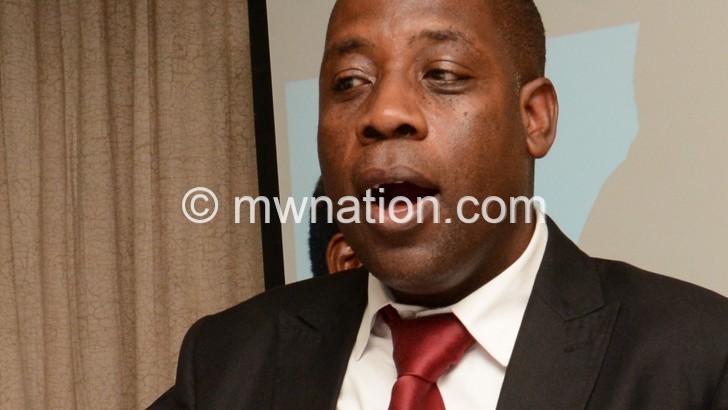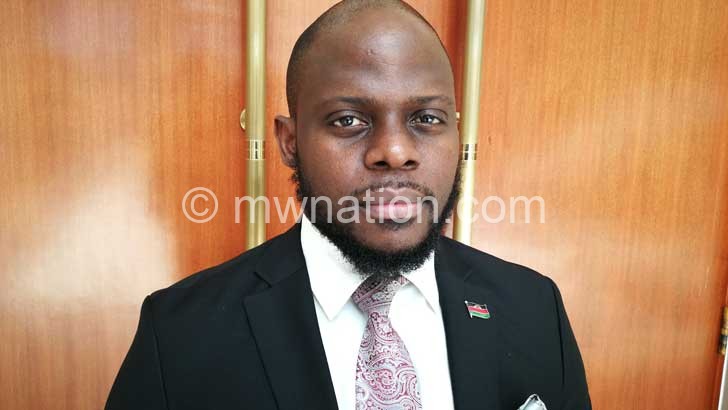NGO funds Stir debate
Debate has resurfaced over transparency and accountability levels among non-governmental organisations (NGOs) following an NGO Board report indicating that the sector is collectively handling budgets estimated at about K1 trillion yearly.
The estimated K1 trillion budget channelled through NGOs is more than what the Malawi Government allocated to local government councils for health, education and agriculture sectors.
The NGO Board report, adopted by the Parliamentary Committee on Social and Community Affairs on June 6 this year, shows that out of the 680 registered NGOs in the board’s database, only 170 submitted reports as required by the NGO Act

But the Council for NGOs in Malawi (Congoma) has questioned the authenticity of the K1 trillion estimated budget in view of NGO Board complaints about non-compliance in submission of reports among NGOs.
However, the NGO Board maintains that the figure is based on financial reports of the 170 NGOs such that the board estimated the sector to be worth more than K1 trillion a year, about K300 billion less than the 2018/19 National Budget of K1.3 trillion.
Out of the 79 international NGOs (INGOs) that submitted reports, 20 had spent a total audited expenditure of K202 billion in 2016 alone, according to the report.
The NGO Board’s analysis also shows that the 20 INGOs cover at least 20 out of the country’s 28 districts with the main areas of focus being health and nutrition, governance, education, agriculture, children, environment, water and sanitation and disability.
Reads the report to Parliament: “About 30 percent of the donation to the 20 INGOs came from the local donors/development partners who are on a bilateral and multilateral arrangement called Official Development Assistance.”
The NGO Board says this shows the NGOs are capable of ensuring that the sector promotes social economic development in the country.
In an interview, NGO Board executive director Voice Mhone said Malawians would appreciate NGOs if they enjoyed the right to information by accessing reports on what they are doing on the ground.
He said: “Malawi is very rich in resources, including money that can uplift the poor out of abject poverty.”
Turning to development partners who have since October 2013 opted to support development activities through NGOs after revelations of Cashgate—the plunder of resources at Capital Hill, Mhone urged vigilance to ensure that NGO work is aligned to national and district development plans and work with area development committees and councils in a transparent and accountable manner.
He said: “Donors should also ensure that their partners are fully compliant with the NGO Act.”
The NGO Board alleged that huge amounts of money the NGOs were handling did not translate to a change in the social economic livelihoods of Malawians.
The Parliamentary Committee on Social Welfare requested the board to carry out a mapping exercise to estimate the amount of funds that were being spent at district level by the NGOs.
In the exercise carried out in Dowa, Chikwawa and Mzimba, the committee noted that a lot of money was being channelled towards district activities through NGOs.
“However, for the most part, the impact on the ground was lacking. The committee noted that while a lot of public attention was paid to scrutinising Government expenditure, there was little emphasis on funds spent by NGOs. The funds for the latter, however, are five times higher than the former,” the report reads.
In Chikwawa, the mapping exercise found that the district council had a budget of K1.4 billion whereas NGOs in the same district were handling K9.2 billion.
In Mzimba, government allocated K1.5 billion, but NGOs had K11.3 billion while Mangochi District Council had a K2.1 billion budget while NGOs had K6.7 billion.
Committee chairperson Richard Chimwendo Banda said it was saddening that with so many billions under the NGOs’ control, Malawians could continue living in poverty.
“It is even more saddening that many of these NGOs while handling such money are not accountable. Some are getting K10 billion a year but you can’t even find where they are operating. This really needs to get the attention of the country,” he said.
But Congoma board chairperson Steven Duwa said ideally such information should have been based on reports submitted to the NGO Board by NGOs which many did not do.
He said: “However, the same NGO Board complains of NGOs not submitting reports regularly then the question is on the source and authenticity of the alleged sum of money being held by NGOs.”
A member of the NGO community, Centre for Development of People (Cedep) disputed suggestions that NGOs were not making a lot of impact on people’s lives.
“The assertion is not true. Let them do evidence-based assessment on the work of NGO work in Malawi. The statement is based on hearsay,” said Cedep executive director Gift Trapence.
He said NGOs in Malawi were doing commendable work in many areas such as HIV and Aids, health, education and agriculture.
According to NGO Board, of the 79 international NGOs that submitted reports, 32 had employed 4 232 Malawians, 96 expatriates and had 169 338 volunteers.
In March this year, the NGO Board indicated that NGOs were handling about K500 billion annually.
The NGO Act requires NGOs to submit to the NGO Board annual audited financial statements—including cash and non cash donations—within three months after the end of the financial year.n





